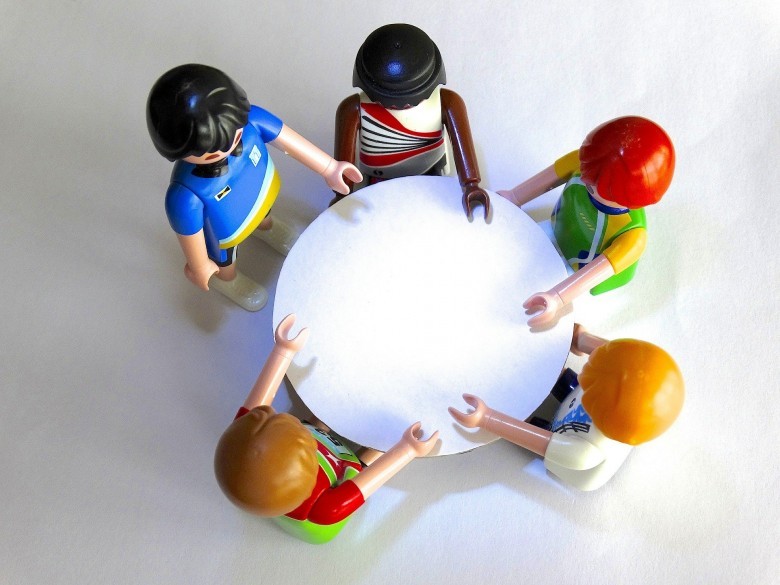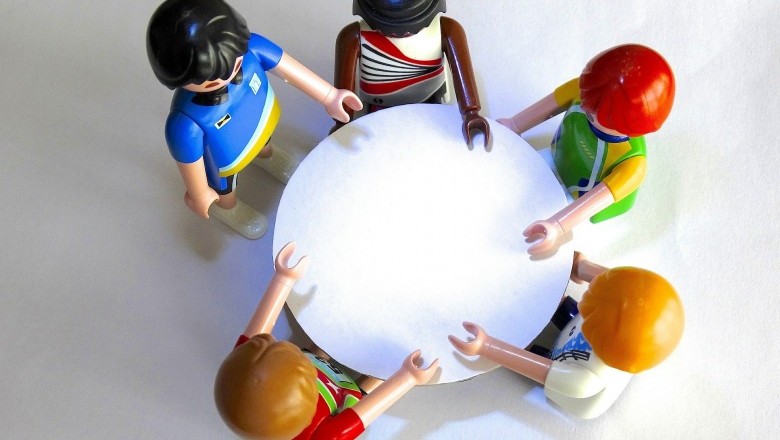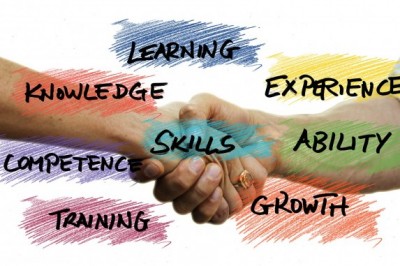
Conversation Skills - How To Deal With Your Mind Going Blank
Recently someone said to me, "My mind often goes completely blank during a conversation. What can I do to keep my mind from going blank when I talk to somebody?"Having your mind go blank during a conversation is actually quite common.
Having your mind go blank is especially common for those people who are shy, and who have trouble talking to someone they dont know.Most of us can recover from these awkward conversational moments, but some people become overwhelmed with terror if their mind goes blank.
Having your mind go blank is especially terrifying for people who are shy, or who lack confidence.The experience of having your mind go blank in a conversation can be even worse if the people you are talking with happen to be immature or cruel. If the other person in the conversation actually makes fun of you for being shy or being tongue tied, this can cause a loss of confidence that can linger for a long time.
If you are worried about having your mind go completely blank when you are trying to make small talk with somebody, here are some tips that might help you.The first, and most important tip is that if your mind does go blank during a conversation, dont criticize yourself for it. Criticizing your self will make the problem get much, much worse, while a refusal to criticize yourself is essential to prevent your mind from going blank in the future.Learn to put more of your mental focus on the other person and less on yourself.
Concentrate on looking for ways to like the other person and look for ways in which you find them interesting. Spend less of your mental energy worrying about whether the other person likes you back.Look for clues the other person will give you about what they are interested in. The things they are interested in are the things they will want to talk about. For most people, their favorite topic of conversation is themselves.
Find out what the other persons interests are, what makes them unique. Watch their facial and body expressions to see what excites them. Then you can keep the conversation going by asking them more questions about the things that truly excite them.Reveal your own interests and opinions gradually to the other person if they seem to have an interest in knowing you better. Keep your revelations about yourself related to the topic and dont reveal too much too soon if youre talking with someone you dont already know.Recognize that improving your conversational and small talk skills will take time. Take several months to keep practicing your small talk skills.
Compile a mental list of topics and interesting events that are in the news, so you can use them as a springboard in conversations that are starting to lose steam.If the conversation seems to be failing, dont beat yourself up mentally because of it.
Remember, you only have responsibility for 50 % of the conversation. The other 50 % of the responsibility belongs to the other person.Remember to ask questions that will require some thought on the part of the other person to answer. Then, find a way to use what they tell you to generate more questions and more comments from you.Dont harshly compare your conversation skills with other people who may be more extroverted or more experienced in making conversation.
This habit of comparing yourself and putting yourself down will do absolutely nothing to improve your own conversation skills. Stay focused on self improvement, and not on self criticism!After a conversation has ended, give yourself a lot of credit for trying to make conversation, no matter how the conversation goes. In the beginning stages of improving your conversational ability, aim mostly for quantity.
Later on, once you become more relaxed and more experienced at talking with others, you can aim to improve the quality of your conversations.Ask yourself what you did well during the conversation. Also, ask yourself what you might do differently and perhaps better, the next time you have a conversation with somebody.
With more practice, your conversation skills will improve.This article was written by conversation expert Royane Real. You can learn more ways to improve your social skills and conversation skills in her special report Your Guide to Making Friendly Conversation.
Available at http://www.lulu.com/real

























